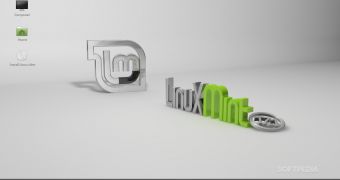The Linux Mint project is using Ubuntu as its base and there is even a branch that's using Debian, but it looks that for the moment it won't be using systemd as the default init system.
Ubuntu has already adopted systemd for 15.04 and it can be used right now, but the Linux Mint developers are not talking this step just yet and it will be quite a while until that happens. It's unlikely that the Linux Mint 17.x branch will see the introduction of systemd, or at least this is what the leader of the project is saying in this monthly update.
Linux Mint is one of the most used operating systems in the world and it's basically the second one after Ubuntu, so it's easy to understand why the community is interested in this aspect. Things seem to have calmed down on the Debian front regarding the adoption of a new init systemd and there hasn't been any opposition in the Ubuntu community. It's not clear what will happen when the Linux Mint fans will be confronted with this issue.
Linux Mint is not embracing systemd any time soon
The first thing you need to know about the Linux Mint 17.x branch is that it is using Ubuntu 14.04 LTS as a base. The Ubuntu developers are only introducing systemd to the 15.04 branch. It doesn't mean that the Mint developers can't implement it right now, but they are probably waiting the next LTS, which will arrive in April, 2016. We already know that the Ubuntu-based version won't be getting systemd, but neither will the Debian-based one.
"Similar to Linux Mint 17.x, LMDE 2 "Betsy" will be using the traditional sysvinit. The move to systemd could happen with Linux Mint 18 and LMDE 3, giving this new technology and the Linux ecosystem 2 years (or more) to mature and to iron out integration and compatibility issues," wrote the leader of the Linux Mint project, Clement Lefebvre.
You can take Linux Mint Debian for a spin and download it from Softpedia. It's a Live system and users won't have any problems running it.

 14 DAY TRIAL //
14 DAY TRIAL //